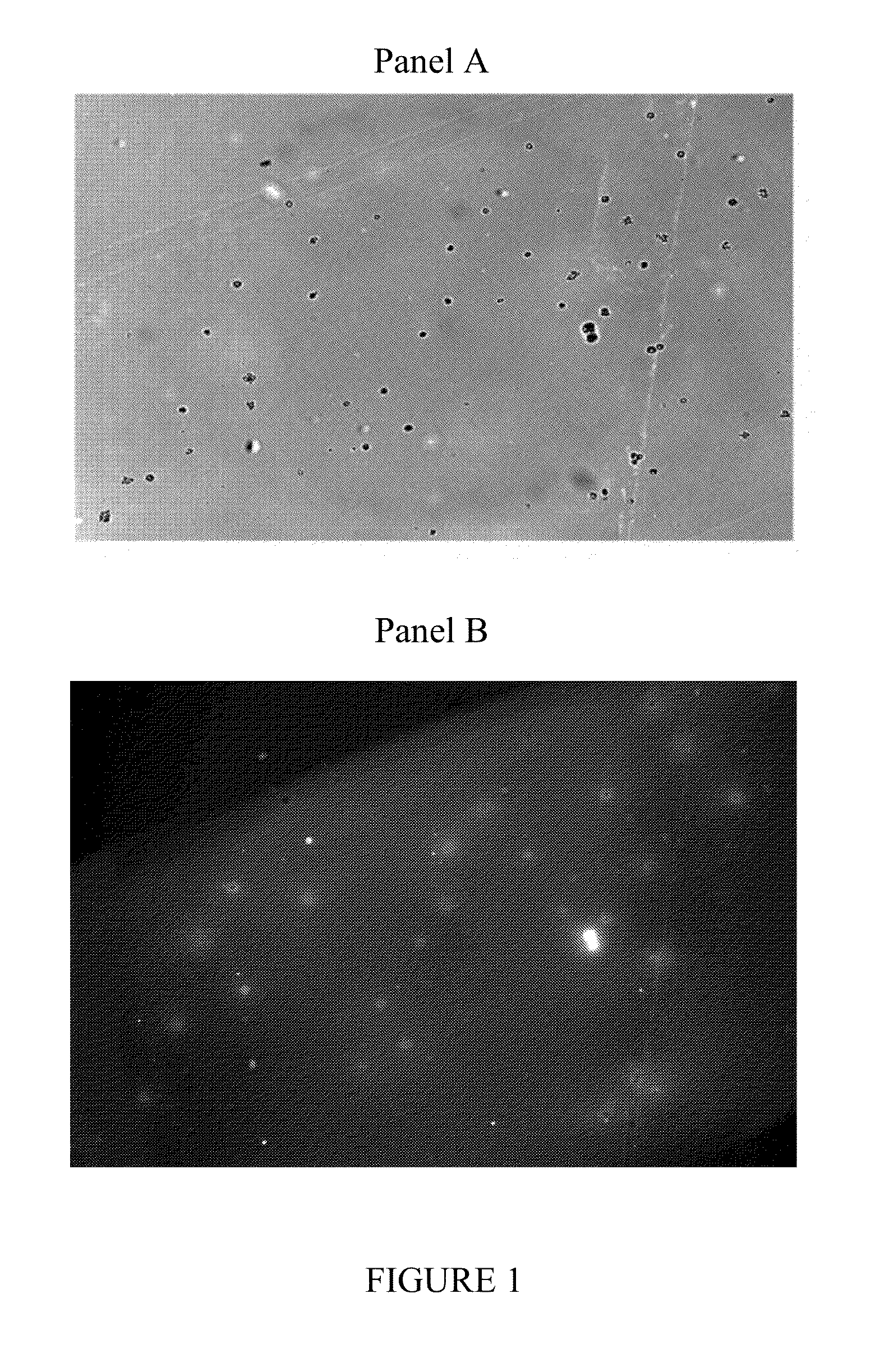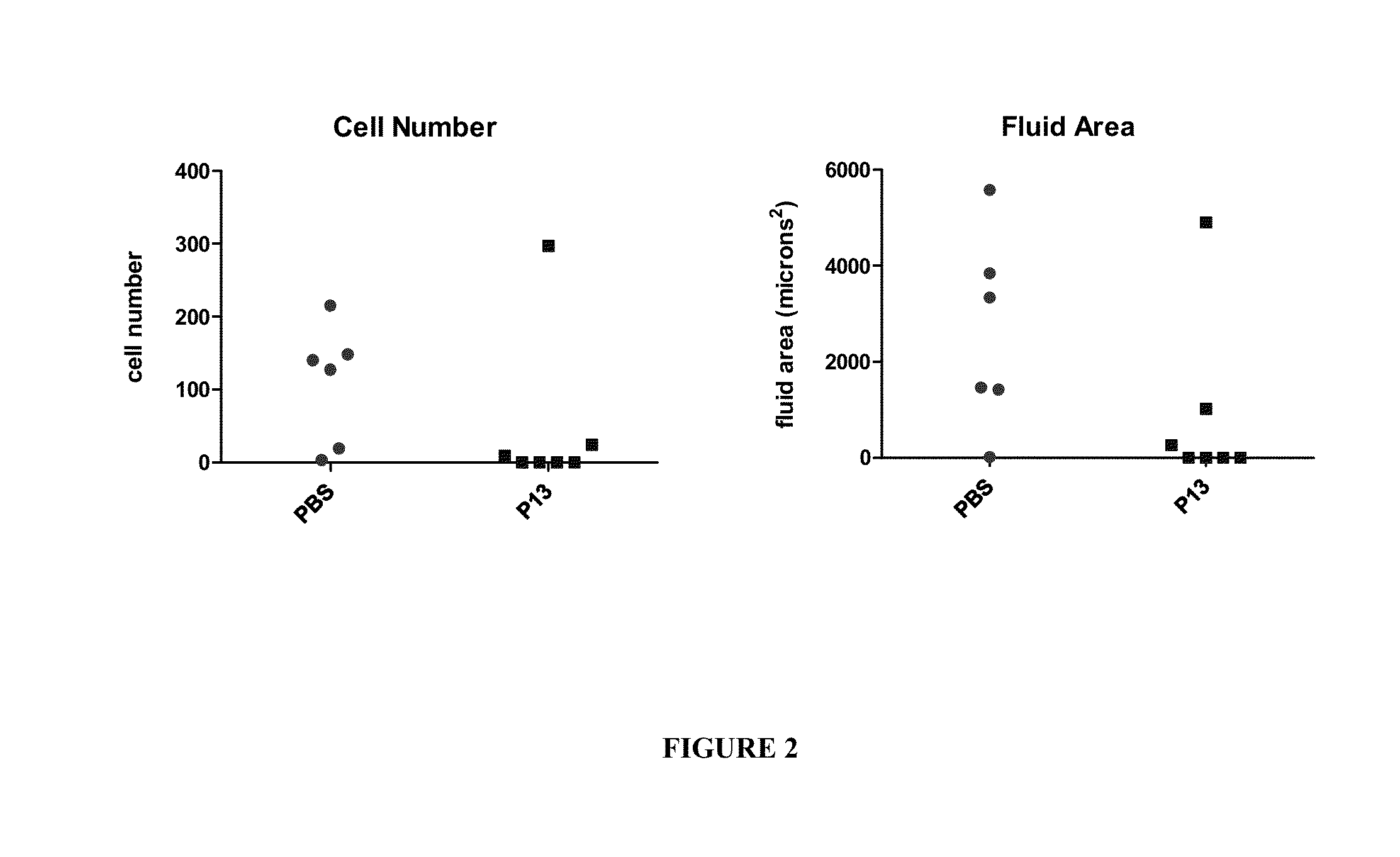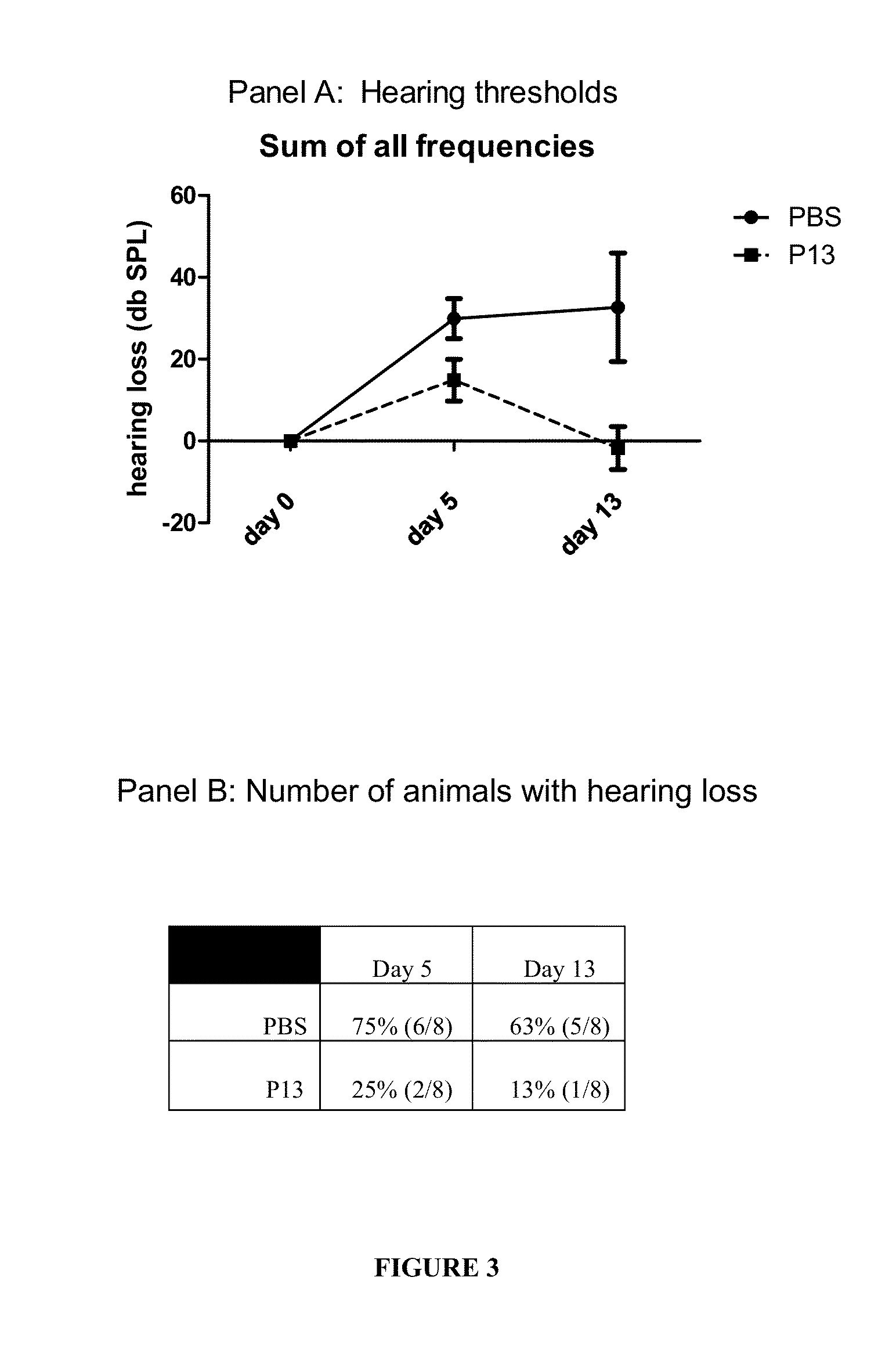Immunoregulatory peptides and methods of use
a technology of immunoregulatory peptides and peptides, which is applied in the field of immunoregulatory peptides and methods of use, can solve the problems of no current therapeutics and sensory-auditory hearing loss, and achieve the effect of improving hearing and reducing hearing
- Summary
- Abstract
- Description
- Claims
- Application Information
AI Technical Summary
Benefits of technology
Problems solved by technology
Method used
Image
Examples
example 1
Materials and Methods
[0120]Peptide of the Natural Configuration:
[0121]Peptides were synthesized by Mimotopes using their unique proprietary parallel array synthesis platform. Each peptide contains an amino acid sequence of the invention and optionally a 9-residue arginine (SEQ ID NO: 379) cell transduction sequence positioned at the C-terminus of the peptide to facilitate cellular uptake. The peptides are presented in Table 1.
[0122]Peptides with D-Amino Acid Residues are Synthesized as Peptides with L-Amino Acid Residues are Synthesized.
[0123]The D-amino acids with the appropriate protecting groups are commercially available for use on automated systems to construct peptides. Peptides described herein can be made entirely from L-amino acids, entirely from D-amino acids, or from a mixture of both in any proportion. A peptide is considered stereochemically-mixed if the peptide comprises at least one L-, and at least one D-amino acid residue. The transduction tag can similarly be made ...
example 2
Effect of Peptides on CpG-ODN-Induced Cytokine Secretion
[0137]The effect of several peptides on TNF-α secretion from RAW264.7 cells in response to stimulation by CpG-ODN was studied. Each peptide was initially tested at 3 concentrations, 37 μM, 22.2 μM, and 11.1 μM. Seventeen peptides demonstrating inhibition of TNF-α secretion of 50-100% across all three doses are presented (Table 2). The peptides were then tested at 11.1 μM, 7.4 μM, and 3.7 μM (Table 3). The peptides continued to demonstrate inhibitory activity at 7.4 μM, and twelve of the peptides had inhibitory activity at 3.7 μM. Cell viability was examined for each peptide at the concentrations tested for TNF-a inhibition. No decrease in cell viability was demonstrated.
TABLE 2Percent Inhibition of TNF-α secretion by S1-S22 peptides witha R9 sequence (SEQ ID NO: 379). RAW264.7 cells were plated at 3X105 cells / well in 48-well plates. After 24 h the cells wereincubated with peptide at various concentrations at room temperature in...
example 3
Effect of Peptides on of CpG-ODN-Induced Cytokine Secretion
[0138]Inhibition of TNF-α secretion by various T-peptides was examined. RAW264.7 cells were plated at 3×105 cells / well in 48-well plates. After 24 h the cells were incubated with peptide at various concentrations at room temperature in triplicate for 15 minutes and then stimulated with 1.25 ug / ml CpG-ODN or 1 ng / ml LPS. Cells were then incubated for 4 hours at 37° C., supernatants collected, and TNF-α measured by ELISA. Percent inhibition was calculated by comparing TNF-α secretion from cells incubated with peptide to control cells with no peptide treatment. The inhibition by peptides T3, T11, T21, T36, T37, T51 and T52 were compared to inhibition by an analogue of P13 having a sequence of nine arginine residues (SEQ ID NO: 379) at the C-terminus (P13-R9; SEQ ID NO: 378). (Table 4).
TABLE 4Percent Inhibition of TNF-α secretion byT peptides. Percent inhibition was calculated by comparing TNF-α secretion from cells incubated wi...
PUM
 Login to View More
Login to View More Abstract
Description
Claims
Application Information
 Login to View More
Login to View More - R&D Engineer
- R&D Manager
- IP Professional
- Industry Leading Data Capabilities
- Powerful AI technology
- Patent DNA Extraction
Browse by: Latest US Patents, China's latest patents, Technical Efficacy Thesaurus, Application Domain, Technology Topic, Popular Technical Reports.
© 2024 PatSnap. All rights reserved.Legal|Privacy policy|Modern Slavery Act Transparency Statement|Sitemap|About US| Contact US: help@patsnap.com










